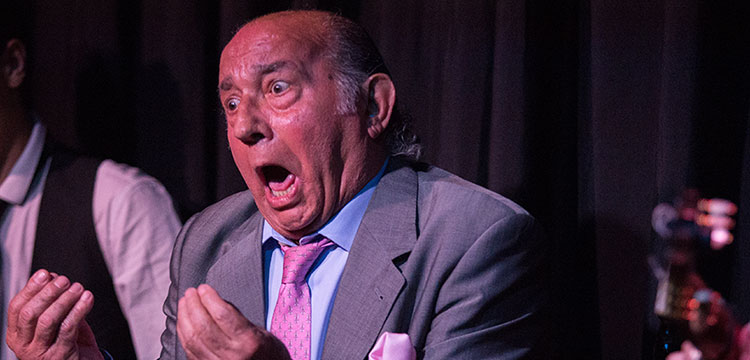Estela Zatania
Now he’s with his beloved brother Curro. Santiago was his universe, the cante his play-thing.
One of the most charismatic artists of Jerez flamenco, Fernando Carrasco Vargas, “Fernando de la Morena”, passed away a few hours ago on this sixth day of June. The news arrived just as most of us were preparing to go to bed last night. The most representative Jerez elder of the pre Camarón generation, those who knew the hardship of the lean years working in the fields after the Civil War, and the golden age of the summer festivals, could not overcome his illness.
A Jerez man through and through, his instinctive knowledge of flamenco was the result of family transmission. He also absorbed vast knowledge and shared flamenco adventures with Tío Borrico, Terremoto de Jerez, Manuel Soto “Sordera” and other legendary figures during the long trips when he was a taxi-driver on the night shift.
He delighted us with his “papas aliñás”, his odd pronunciation and the expansive nature of his gestures, eyes popping out like saucers, and he shook us to the core with powerful siguiriyas and moving soleá. The original way he inserted “ay” here and there, pure personality in this age bereft of personalities. Sparks and creativity in the festive forms, depth and expressivity in the more serious ones, short perhaps on repertoire, but long on communicative power. He left his mark on the most classic forms. Singers like this are no longer being born.
The fandangos were unmistakable, with his “a la una, a las dos y a las tres” of Niño de los Barrios. And his brilliantly flamenco “trilla” songs, possibly his greatest contribution, based on memories of his years in the fields, have set the form followed by young singers in Jerez and beyond.
In an interview we did several years ago, Fernando expressed his disapproval of avant-garde influences in flamenco singing. Let’s let the maestro have the last word: “Those who want to do flamenco and latch onto those ways, and that fusion and these things they’re doing nowadays, when they want to go back and sing siguiriyas in any kind of credible way, they’re not going to find it, it just won’t be there. I offer my respect to everyone, but I’ll take traditional singing any day. All musical concepts have a beginning, and if you stray too far from the roots… I know everything has to evolve, but in another way, because what I’m hearing today, that’s not flamenco any more…”
